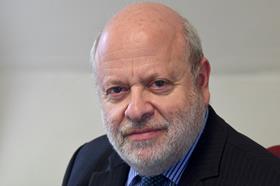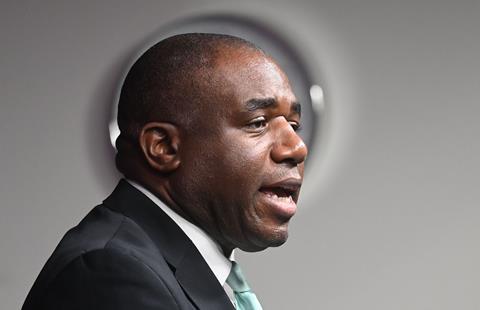It may be foolhardy to highlight a speech containing party policy when the party manifestos are being published only this week - particularly if the speech was given before the election campaign.

On 21 May, the day before the election was called, David Lammy MP gave a speech which is of great interest to us lawyers. Given the way the polls are going, he is likely to be foreign secretary in a few weeks. If so, he will be a lawyer foreign secretary in a government led by a lawyer prime minister.
His speech was the keynote at an event on combating transnational kleptocracy, organised by the Institute of Public Policy Research (IPPR).
There was a section in the speech on enablers (that is where we sit up and take notice).
As to what is being enabled, Lammy was clear. He said that as much as £90 billion is laundered annually in the UK, a number higher than the UK’s annual defence budget. He complained that the KGB’s heirs had been allowed into the UK and offered professional services:
‘The finest bankers, lawyers, estate agents and accountants that money could buy. In the full knowledge they were being used as corruption services. Often the clients were directly visibly connected to the world’s most despicable authoritarian crooks.’
He said that London had been turned ‘into a kleptocrat’s monopoly board where luxury properties became the bitcoins of kleptocrats driving up house prices for everyone else. Sitting empty with the lights out, as safety deposit boxes for stolen wealth.’

He noted that, following the Russian invasion of Ukraine, there has been an 18 times increase in UK car exports to Azerbaijan; that British exports to Kyrgyzstan have surged more than 10 times; and that, overall, UK exports of Russia sanctioned items to Armenia, Kyrgyzstan, Georgia and Uzbekistan have surged by over 500%. He contrasted US fines and seizures for sanctions evasions in the many hundreds of millions of dollars to the UK’s having seized precisely nothing.
And he points the finger directly at lawyers over kleptocracy: ‘Every time a kleptocrat launders money or evades sanctions through British territory they are enabled by hired help. It’s not just in the mafia movies that the attorney knows where the darkest secrets lie. Every time a money laundering scheme succeeds in British territory there was an enabler behind it. An incorporation agent, a banker, a lawyer, an accountant.’
He said his proudest day as a young man was when he told his mother that he was now a lawyer. ‘I believe in our professions.’ He believes almost all of us do honest work. But: ‘I don’t believe it is right that despite the mountains of evidence, zero law firms have been prosecuted for criminal breaches of anti-money laundering rules … despite the explosion in sanctions the number and value of fines fell by around a third between 2021 and 2023. I am against the culture of impunity.’
So what specific and targeted policies can we expect if Labour wins the election … and which may or may not be in the manifesto?
First, Lammy promised a UK-hosted summit of allies and international financial centres to launch a sustained initiative to tackle dirty money, with coordinated action against enablers and kleptocrats, in partnership with the private sector, closing down the architecture managed by financial centres which facilitates enablers and kleptocrats.
Second, his government would seek to establish a live-streamed global data exchange on beneficial ownership of corporate structures, including trusts and trust-like arrangements, to ensure frictionless investigations.
And, finally, his government will use Britain’s diplomatic leverage to push for the creation of an international anti-corruption court, to prosecute the most egregious acts of international corruption.
The government will also work with UK overseas territories, which he said are yet to take the full swathe of actions necessary to develop a clear time-bound action plan.
There will be specific action taken against so-called enablers: a crackdown to ensure that the UK’s sanctions regime across all thematic and country regimes consistently and specifically targets professional enablers, and that there are appropriate mechanisms to ban them from entering the UK.
In an interview after the election was called, David Lammy added that a future Labour government would also re-introduce legislation against SLAPPs (since the private member’s bill, which was progressing through parliament to fill the anti-SLAPPs gap left by the Economic Crime and Corporate Transparency Act 2023, fell once the election was called). He said that he would be happy to work with the Law Society to get the wording right.
We will see which of these ideas survives once the manifesto is published this week. But the direction of travel of a possible future Labour government is clear: stricter anti-money laundering rules, more identification of lawyers as enablers of corruption and kleptocracy, and renewed legislation against SLAPPs.
Jonathan Goldsmith is Law Society Council member for EU & International, chair of the Law Society’s Policy & Regulatory Affairs Committee and a member of its board. All views expressed are personal and are not made in his capacity as a Law Society Council member, nor on behalf of the Law Society































6 Readers' comments